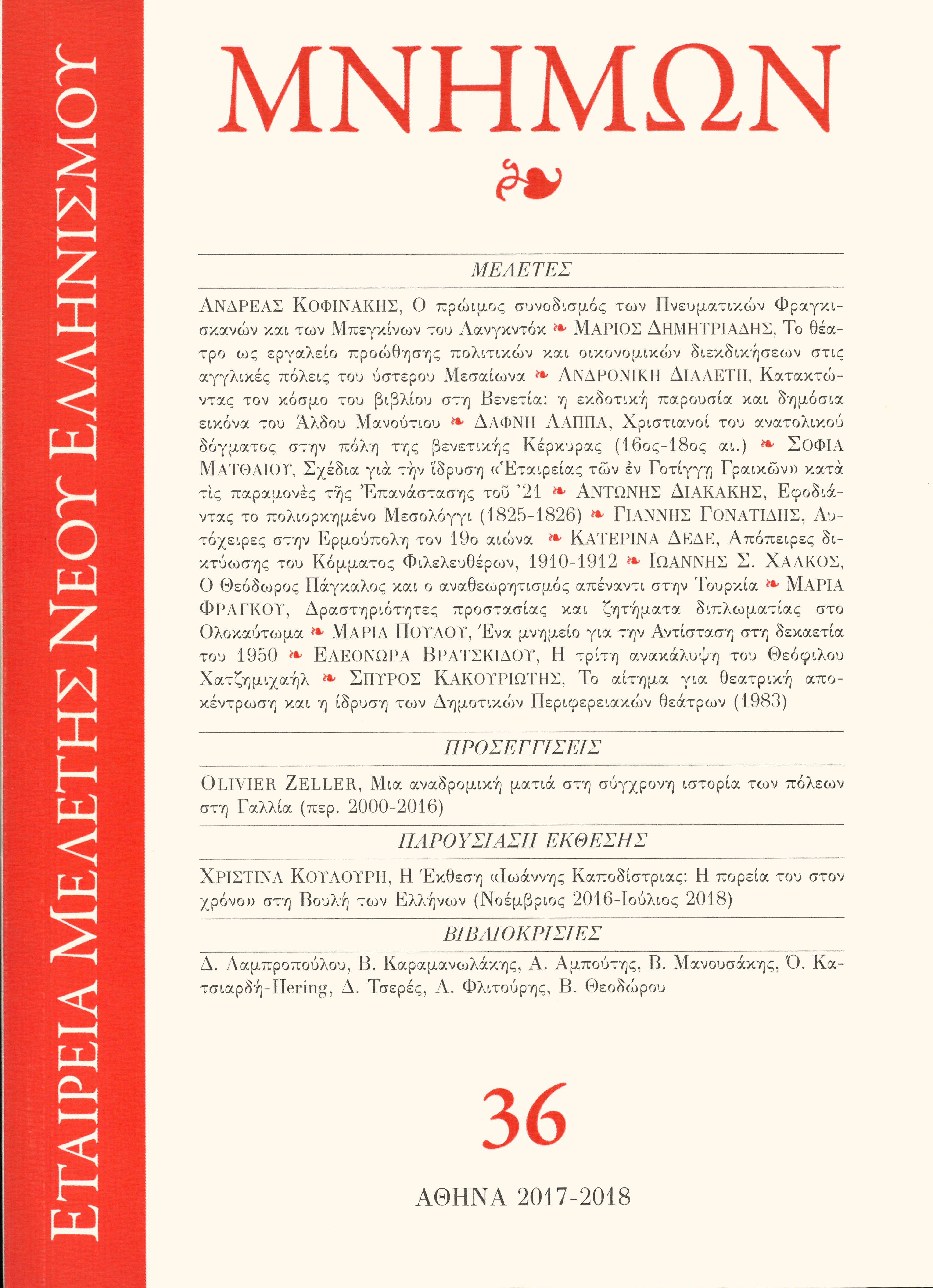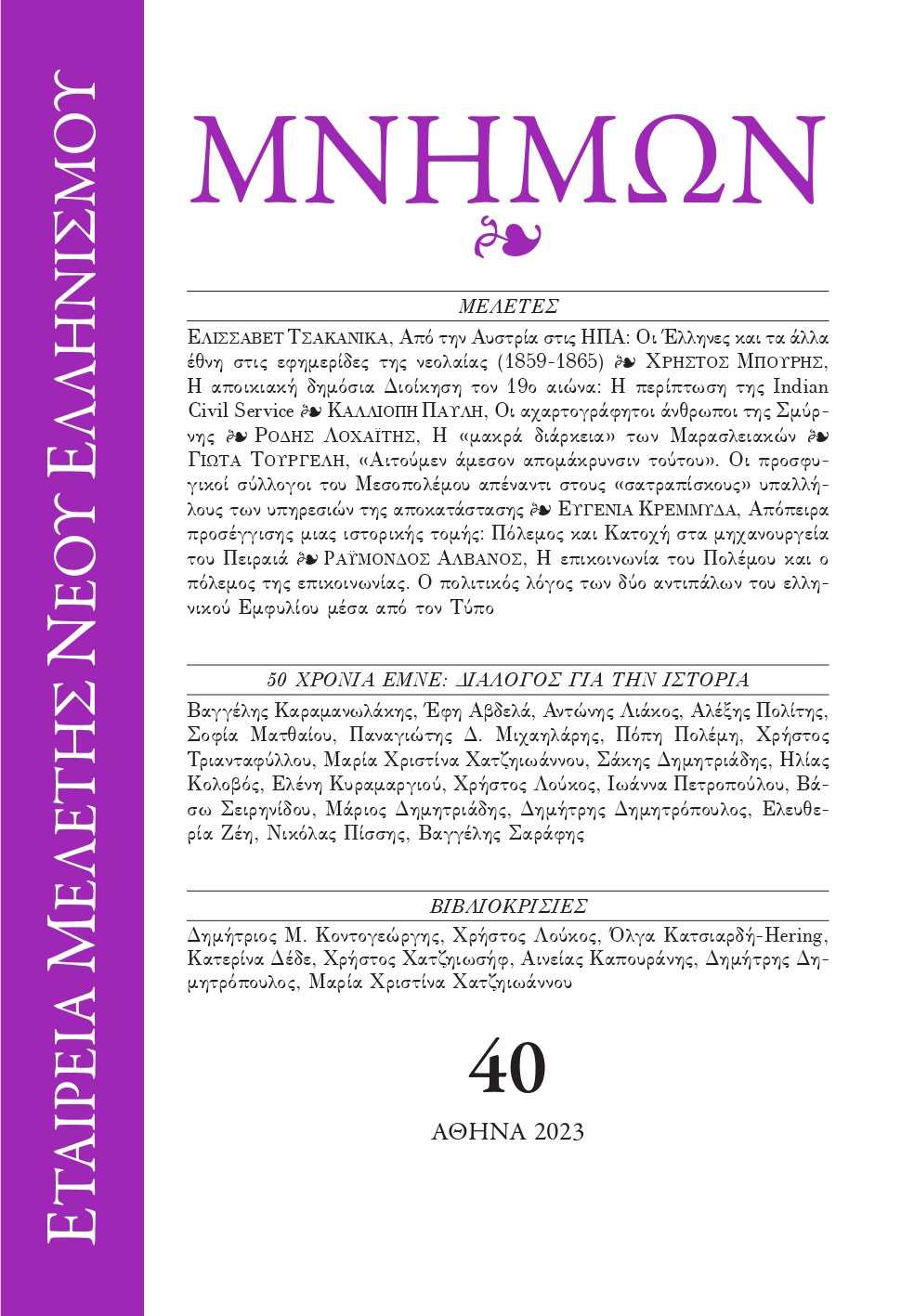DRAMA AS A MEANS OF PROMOTION OF POLITICAL AND ECONOMIC DEMANDS IN LATE MEDIEVAL ENGLISH TOWNS

Abstract
During the 14th century, the English guilds managed to impose them selves in the civic councils and gain political and economic control over the urban communities, by promoting their influential members in the civic hierarchy. The redistribution of power from landlords to merchants, forced the majority of the world of labour to join in a guild in order to ensure their job positions, which were already threatened. Under these circumstances, artisans, craftsmen and daily labourers tried to make a living and also support their poor and underprivileged colleagues. During this period, political and economic antagonisms and struggles are noted between a) journeymen and masters, b) monarchy and the urban elites, c) the world of labour and the civic councils. The policies of the civic elites in conjunction with the crises of the 14th century led the world of labour to use drama and civic rituals as a means to assert new rights and maintain traditional privileges. This paper focuses, firstly, on the various strategies of transformation of the biblical and secular drama into a field of public debates. Secondly, it highlights their arguments on stage and in their workplaces. Thirdly, this paper examines the significance of the theatrical productions as an agent of the promotion of urban uprisings.
Article Details
- How to Cite
-
DIMITRIADIS, M. (2024). DRAMA AS A MEANS OF PROMOTION OF POLITICAL AND ECONOMIC DEMANDS IN LATE MEDIEVAL ENGLISH TOWNS. Mnimon, 36(36), 33–52. https://doi.org/10.12681/mnimon.36820
- Issue
- Vol. 36 (2018): Μνήμων
- Section
- ARTICLES

This work is licensed under a Creative Commons Attribution-NonCommercial-ShareAlike 4.0 International License.
The copyright for articles in this journal is retained by the author(s), with first publication rights granted to the journal. By virtue of their appearance in this open access journal, articles are free to use (with the exception of the non-granted right to make derivative works) with proper attribution for non-commercial uses (licence Creative Commons 4.0). EKT/NHRF retains the worldwide right to reproduce, display, distribute, and use articles published in Mnimon in all formats and media, either separately or as part of collective works for the full term of copyright. This includes but is not limited to the right to publish articles in an issue of the Journal, copy and distribute individual reprints of the articles, authorize reproduction of articles in their entirety in another EKT/NHRF publication, and authorize reproduction and distribution of articles or abstracts thereof by means of computerized retrieval systems.


